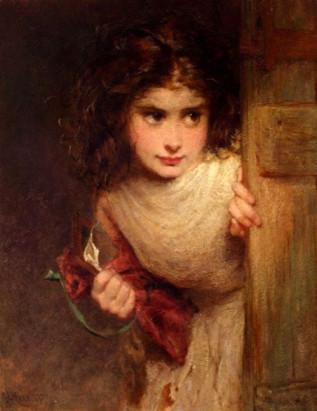Here’s a recent article about a strategy for protecting children from sexual abuse:
…children have a natural ability to sense who is safe and who is not safe. “You, the parents, need to trust this sense and foster its development rather than try to change a child’s mind.” So, believe your children and cultivate a “No Secret” family…Susan Caruso…argues that it is vitally important to use the correct terms for a child’s private parts and talk about body safety. Caruso encourages parents to use the terms “surprise” or “safe secrets” when it comes to temporarily withholding information for birthdays or holidays. Outside of this, parents need to be clear that “we don’t keep secrets in our family”…
That’s all very commendable and well-intended, but it was clearly dreamed up by straight, vanilla people who either developed late or don’t remember their own childhood sexuality, and therefore think of sexual secrets as only something that a child would be asked to keep by a molester, when in actuality a child might have their own sexual secrets that have nothing to do with molestation. While it’s true that some children, perhaps even the majority, have rather low-key sexualities that don’t go much beyond “it feels good when I touch myself like this,” many others fall into sexual or gender minorities that stand out in sharp contrast to what they see around them or on television. As I’ve written before, I was attracted to women from a young age, and though I didn’t realize my fascination with bondage and power exchange (especially science fiction mind-control) was “sexual”, I did understand that other people were not similarly fascinated, and I felt intense feelings of shame around it. Nor am I alone; many of my queer and/or kinky friends report feeling that way from a young age, and most of us recognized it as something we should keep to ourselves because our parents wouldn’t accept or understand.
Though my mother assiduously avoided sexual topics with me, and dismissed me or gave me non-answers when I cautiously asked sexual questions, I do think she would’ve believed me had I been molested and told her about it. I suspect that’s not so unusual; I can imagine that many people, especially in the present climate of child sex abuse hysteria, would be ready to believe that their child was molested, but would freak the fuck out if the child admitted to homosexual or kinky feelings themselves, or declared that they were of other than their biological gender. In fact, I can easily imagine parents blaming a nonexistent molester for “putting those ideas” in the child’s head (the anti-sex mob calls this “prematurely sexualizing” them) rather than admit that their “precious, pure little angel” was a queer or a pervert or trans or all of the above. The result could be even more traumatic than a molestation, and instill lifelong shame and trust issues.
The fact of the matter is, children are people separate from their parents; they are not part of their parents, and they aren’t owned by them, nor are they blank slates to be written neatly upon in whatever style and language their parents desire. They are individuals with their own personalities from the very beginning, and a certain fraction of them are born with (or develop at an early age via mysterious channels) sexual or gender patterns that have nothing to do with what their parents might prefer or choose to “teach” them. And individuals of any age past toddlerhood deserve a certain degree of privacy, especially in the realm of their own thoughts. So by all means, tell your children that it’s wrong for anyone to ask or order them to keep secrets from you, but before you unilaterally declare that “we don’t keep secrets in our family,” you had better give some thought to how you’re going to react if your little darling trustingly confides in you about “weird” sexual feelings you’d really rather they didn’t have.

